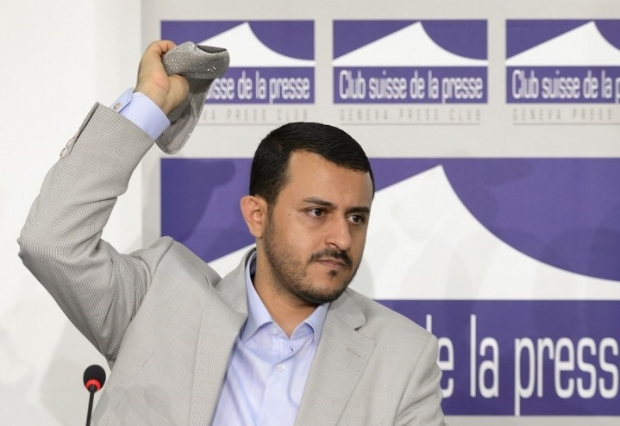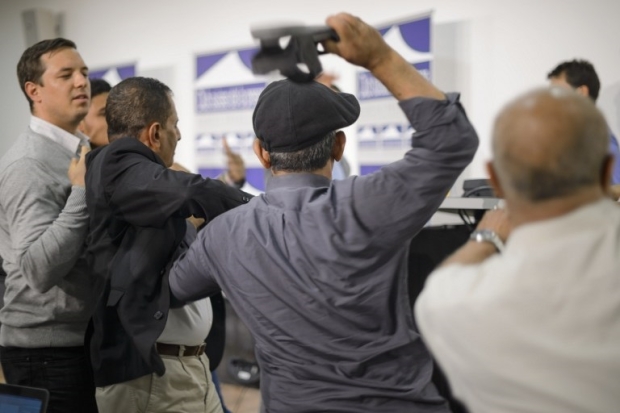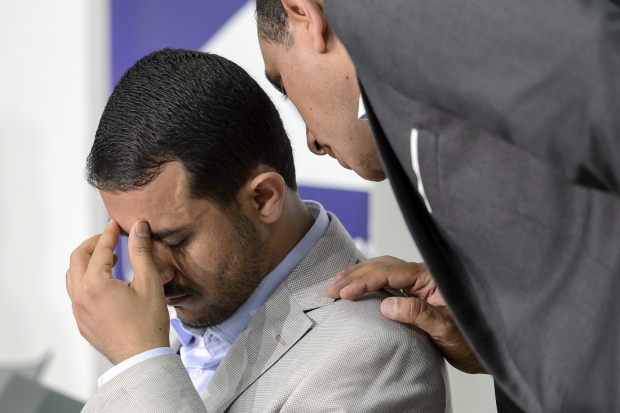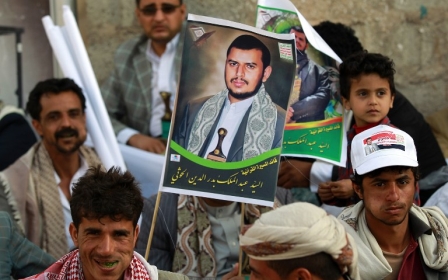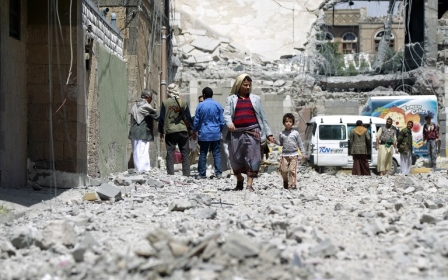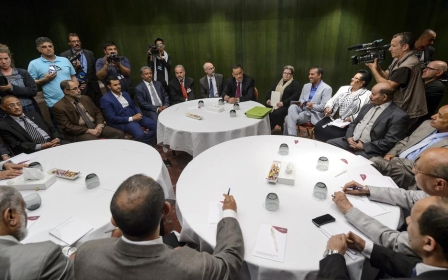Melee erupts between Yemen government supporters, Houthis in Geneva
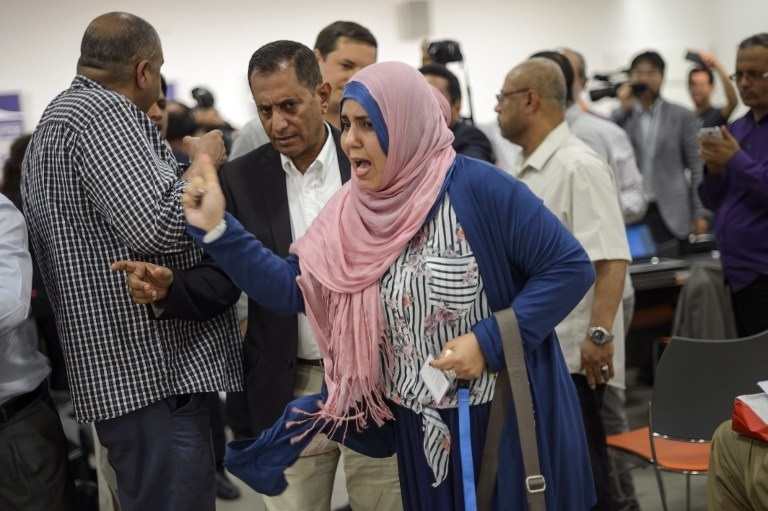
Yemen peace talks descended into chaos on Thursday after a woman threw a shoe at the head of the Houthi delegation, causing fights to break out and bottles and books to be thrown.
The woman, who has not been named, reportedly stormed into a press conference being held by the Yemeni delegates and hurled a shoe at Hamza al-Houthi, the head of the Houthi delegation in Geneva, and called him a mass murderer.
She was quickly joined by six men who shouted slogans against the Houthi delegates and started raining blows at them, screaming: "Killers, you are spreading death and disease in South Yemen."
Houthi proceeded to throw the shoe back at the woman, with fistfights then breaking out amongst some members of the audience.
The melee lasted several minutes with bottles hurled before the intruders were hauled out.
The woman's gesture was immediately hailed on social media in Aden, the main port city in South Yemen.
Translation: Al-Houthi’s real value is a shoe, although the shoe is worth more than him.
The incident underscores the difficulty in getting the Houthis, backed by forces loyal to former president Ali Abdullah Saleh, and the government of his successor Abd Rabbuh Mansour Hadi, as well as the Saudi-led anti-Houthi coalition, to agree to a badly-needed humanitarian truce.
Once order was restored at the meeting, Houthi said that his side had wanted a humanitarian truce but it had been rejected by Saudi Arabia which formed a military coalition comprised of mainly Arab states and began a bombing campaign against Saleh and the Houthis on 26 March.
According to Houthi, the Saudis have been using "nitrogen bombs and other horrible arms" to "massacre women and children". He also insisted that the conflict had only helped to boost al-Qaeda’s operations in the country and that the group was "exploiting the situation and using the aggression to extend its influence over the region".
Yaser al-Awadi, another member of the rebel delegation said the "Yemen war has become an economic investment for Britain, France and the United States".
"Their arms factories are working full-time for two months to furnish and supply arms," he added.
The Saudis and Hadi supporters on the other hand say they are trying to get the Houthis to retreat back to their traditional stronghold in accordance with a previous UN deal agreed last September. The deal was penned after the Houthis stormed the capital and occupied various government buildings, but its terms were never enforced and the Houthis in January dissolved the government and put leading politicians, including Hadi, under house arrest. Hadi was able to flee to the southern capital Aden, but the Houthis continued to march south taking over large swathes of the country.
The latest UN talks have been attempting to break the deadlock, but even personal appeals by UN Secretary General Ban Ki-moon for a badly-needed two-week humanitarian truce have fallen on death ears. The two sides are still not meeting face-to-face.
"The only positive point so far is that the negotiations are continuing and that no delegation has slammed the door," a Western diplomat close to the talks told AFP on Wednesday.
The US has also lashed out at the Yemeni government for allowing an alleged al-Qaeda financier, Abdel-Wahab Humayqani, to attend the talks.
The US added him to a terror blacklist in 2013 for financing AQAP. The State Department said that he was "at the centre of global support networks that fund and facilitate terrorism" and that he was trying to build a political party that would act as a cover for AQAP.
It also accused Huamayqani of planning a 2012 attack that killed seven.
Meanwhile, violence has continued to rage. Five simultaneous blasts ripped through the Yemeni capital on Wednesday killing at least 31 people and injuring dozens. The blast was later claimed by Islamic State which said it was a "revenge" attack for the Houthi takeover of Sanaa.
New MEE newsletter: Jerusalem Dispatch
Sign up to get the latest insights and analysis on Israel-Palestine, alongside Turkey Unpacked and other MEE newsletters
Middle East Eye delivers independent and unrivalled coverage and analysis of the Middle East, North Africa and beyond. To learn more about republishing this content and the associated fees, please fill out this form. More about MEE can be found here.


